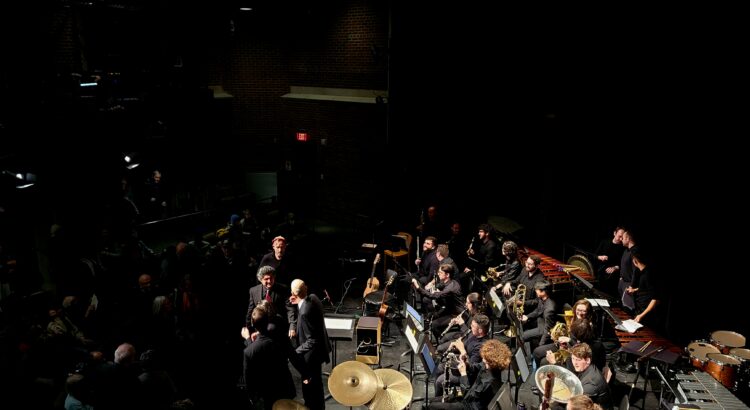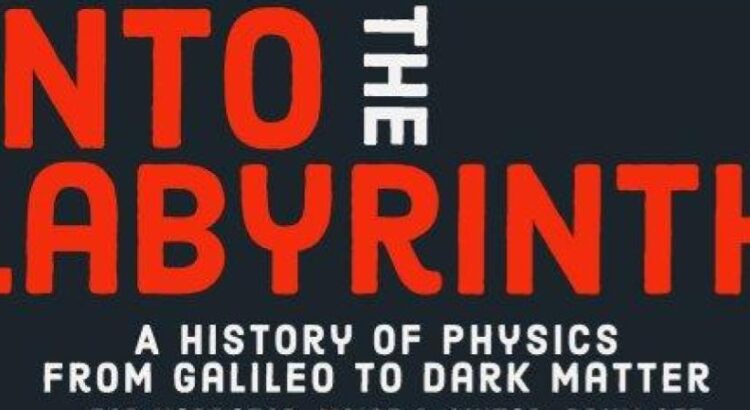8:00pm • Friday, January 27, 2023 • Keene Theater
Into the Labyrinth was a mind-boggling musical experience, most of which shot straight over my head and toward the stars. The concert was a dynamic fusion of the history of physics, Argentinian folk music, jazz, experimental decaphonic guitar, sung poetry, and spoken word. The evening was structured chronologically, beginning with Galileo’s ponderings about the knowability of the universe, moving onward to Newton’s Laws of Motion, to Clausius’s definitions of thermodynamics, to the work Maxwell, Curie, Einstein, and other physicians who I didn’t learn about in 10th grade, to the physicians who pioneered the theory of quantum mechanics and electrodynamics. This brief history of physics was conveyed not only through direct quotations, but also through poetry and excerpts from Elfriede Jelinik’s play Kein Licht (“No Light”).
At the beginning of the program during a Q&A, Alberto Rojo, the work’s primary composer, explained how carefully he had chosen different styles of Argentinian folk music to represent the different eras of our understanding of physics. Again, most of this went over my head, because I have zero background knowledge on either subject. Instead, I related closely with Michael Gould, the work’s arranger, who in joking reference to the complexity of the piece said something like, “You just have to let it wash over you,” which I did.
My favorite movement was the last, which Rojo describes as “an open-ended appeal to continue the search for understanding.” The movement featured a “decaphonic” guitar that Rojo constructed as a way to explore different ways to divide up the musical scale. Typical Western music uses a seven-step scale, the one you’re familiar with if you’ve ever heard “Do-Re-Mi” from The Sound of Music. Rojo’s guitar took one interval of sound (the distance between Do and Do, if this makes any sense to you) and divided it into 10 equal parts, resulting in a sound that he described as “the music of a culture that doesn’t exist.” I loved how the idea of “discovering” an unfamiliar scale connected with the theme of scientific exploration and the unknown.
My overall impression of the concert was that of a wild experimental musical. I wish I could watch it a few more times over, to really dig into the details of the quotations and the music. I feel privileged to have been at its world premiere, and I hope Into the Labyrinth will see a successful future in front of further audiences.



